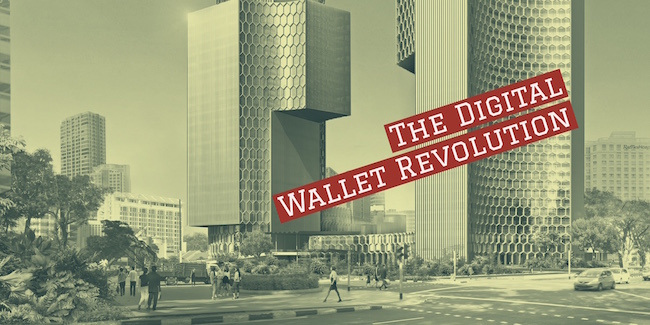Believe it or not, digital wallets have been around for years. The first signs of the digital wallet revolution date back to the late 1990’s with PayPal being used as a software solution for eBay users that made it convenient to store their cards for repeat online purchases.
Unfortunately, digital wallet technology was shaky, and customers and retailers were slow to adopt over concerns like security or not even being aware of the existence of digital wallets. All of that thinking changed in October 2014 when Apple Pay debuted. Now we have digital wallets from a wide-range of organizations like Samsung, Starbucks, and Due.
Table of Contents
ToggleDigital Wallets
While digital wallets have completely taken over payments, there’s no denying that they’ve gone mainstream. In fact, eMarketer found that in 2015 there were around 23.2 million people in the U.S. using proximity mobile payments. The number was expected to increase by 61.8% to 37.5 million. By 2017, eMarketer 37.0 percent of the younger age group will have adopted the technology.
“Younger consumers generally have fewer apprehensions when it comes to experimenting with and eventually adopting new technologies,” said eMarketer analyst Bryan Yeager. “That’s certainly true for mobile payments, where security concerns are more pronounced among older consumers. Ultimately, mobile wallets will need to have a strong track record of security to attract more users across all demographics long-term.”
A study conducted by Square, however, found that 44 percent of Millennials have adopted mobile payments and those with Apple Pay and Android Pay use the technology at least once a week.
Millennials are using digital wallets.
Globally, it’s a different story,
Turkey, Denmark, Norway, and Israel are the biggest users of mobile wallets. In the UK, one in 10 card transactions are now contactless. And, it’s planned for every single POS terminal in the U.K. and Ireland to be contactless by 2020.
In Australia, 53 percent of people use make contactless payments at least once a week at grocery, fast food, and drug stores. In Canada, about 10 percent of all domestic transactions are contactless and it’s believed to growing at the rate of 1 percent per month. Finally, the mobile wallet market in India is expected to become a $6.6 billion industry by 2020.
If you haven’t realized it yet, there’s a digital wallet revolution underway. And, it’s because Millennials are completely embracing the technology.
Why Millennials are important
Millennials, those born roughly between 1982 and 2005, are currently the largest demographic in the U.S. At around 80 million strong, Millennials expected to generate 46 percent of all U.S. income by 2025. In other words, they’re going to be “the financial force of tomorrow.”
Additionally, a whooping 86 percent of Millennials own a smartphone. Because of this, they would prefer to do their banking online. In fact, 71 percent shockingly admitted that they would rather visit the dentist then listen to what traditional banks have to say, while 33 percent believe that within five years they won’t even need a bank. Furthermore, 47 percent have transferred funds to someone else electronically.
With a digital wallet app, Millennials can make payments, view statements and transactions, set up recurring payments, and pay back friends instead of writing a check, exchanging with cash, or receiving a paper statements in the mail.
Why digital wallets are connecting with Millennials
Millennials are the driving force behind digital wallet adoption. We quickly discussed why younger generations are embracing digital wallets, but here’s a more in-depth look at how digital wallets have won have this important demographic:
- Convenient and Flexible. Around half of Millennials use mobile payments to speed-up financial transactions, 44 percent would prefer to pay using their mobile phone than with cash, and 50 percent want to connect their mobile payment information to a “wearable” device, such as a smart watch.
- Millennials monitor spending regularly. Mobile wallets give users the chance to check their balances regularly. In fact, 52 percent of Millennials want mobile payments to help them track their spending
- Mobile wallets offer loyalty programs, special offers, and coupons. Digital Wallets do more than transfer funds and track spending. They make transfers and transactions seamless and safe. In a Urban Airship study, 67 percent of respondents said they wanted their mobile wallets to offer loyalty cards, and 62 percent said they wanted coupons.
- Millennials enjoy engagement features. Digital wallets allow brands the opportunity to reach out and remind users of an upcoming expiration date, event, or notify them of the current loyalty bonus or transaction. Also, digital wallets can also contain important information like boarding passes, event tickets, reminders, and ID cards, which means you can leave the house with just your smartphone.
- Lend or payback friends. Thanks to the peer-to-peer capabilities of digital wallets, Millennials can either lend, payback, or split bills with their friends, family, or co-workers. This is a reason why Venmo has become such as phenomenon.
All money will soon be digital
Millennials aren’t the only reason why digital wallets will replace traditional payments methods, like cash and checks. As noted in a previous Due post, all money will eventually be digital because:
- It’s cheaper for governments to go digital because it’s expensive to produce coins and bills.
- Since we’re not exchanging physical currency, crime will be reduced and there will be less germs.
- It will be easier to catch tax evaders.
- Payments will occur almost immediately, no matter where you live in the world.
- There may eventually be a global currency, like bitocoin. This is so that exchanging currency and price conversions will become a thing of the past.
The digital wallet revolution is here. And it’s time to jump-on-board by educating yourself and loving the awesome perks that digital wallets have to offer.

















